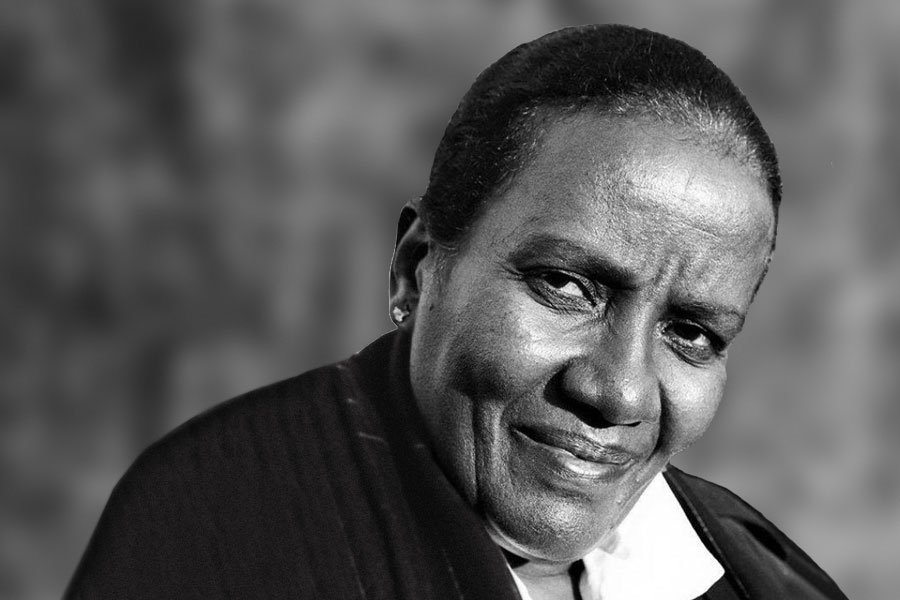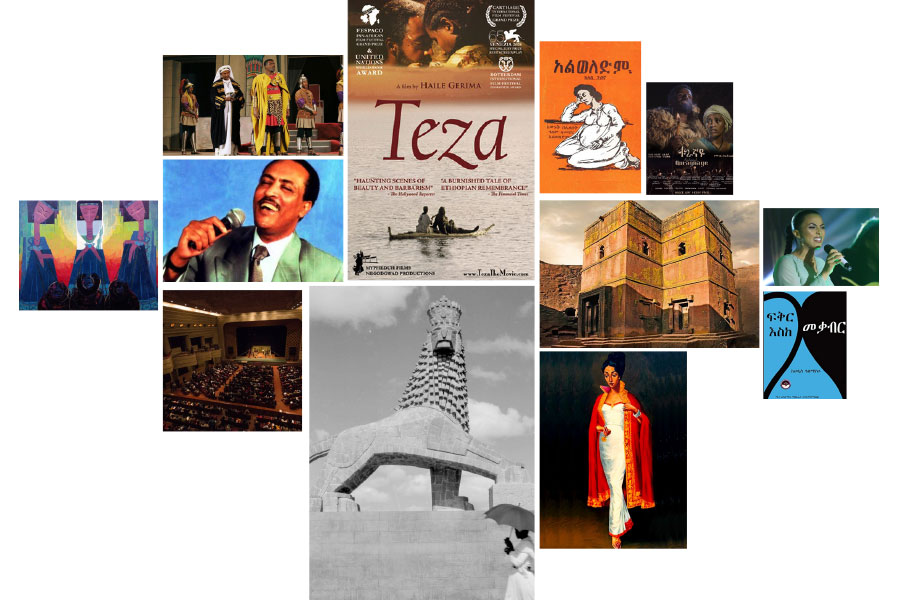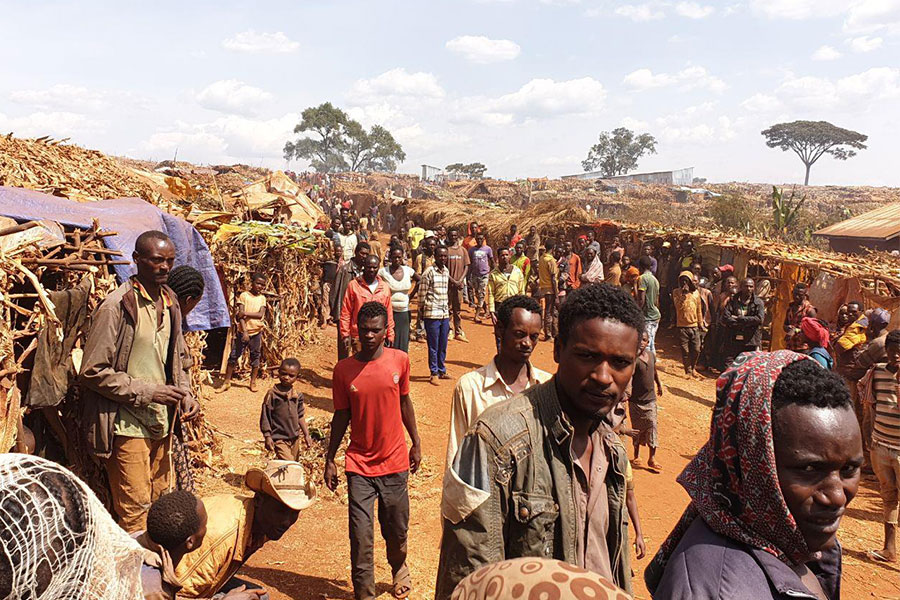
Obituary | Mar 21,2020
Oct 3 , 2020
By Eden Sahle
Over the weekend, I read a great book called ‘Hope Heals: A True Story of Overwhelming Loss and an Overcoming Love.’ It tells the true story of a young couple’s sudden health-related tragedy, endurance and unfailing love.
Having gotten married right after their graduation at the age of twenty-two, their lives turned upside down by the age of 26, when the wife suffered a brain stroke.
The life-threatening bleeding in her brain not only left her severely handicapped but also added agony to their marriage, turning the husband into a caregiver and the wife into a patient. But amidst the crisis, the couple made sense of the tragedy and that pain that had suddenly swamped them.
It is a great book. It has inspiring marital stories, in which unwavering commitment and sacrifice creates a strong bond. It is incredible how her husband cares for his wife, giving up everything he had dreamed of in life and loves her unconditionally even when she became physically unrecognisable and handicapped to the point of needing his constant help to carry out the most basic of tasks.
We have similar, inspiring stories of commitment here in Ethiopia, among our close kin and friends. A relative of mine, who had been married for 28 years until her husband died almost a year ago, had a similarly inspiring story.
After they welcomed a daughter, she found a massive opportunity for her career. The husband left his job because there needed to be someone taking care of the children. He stayed home and did the house chores, even when many close friends gave disapproving opinions in line with the traditional culture that assumes that the man should be the breadwinner.
Bravely silencing the outside noise, they lived appreciating and supporting one another. They used this same determination to brave through when the husband had a minor spinal surgery that went terribly wrong and left him with paralysis. He lost his speech and became unable to eat solid food.
But at the same time, it was yet another opportunity for us to witness their strong bond. The wife left her job to take care of him. She became a full-time caregiver to her husband for over a decade until his last breath.
These couples are not individuals who have lost their rationality. They enter marriage aware of the fragility of life and the importance of being there for one another. They fully lived their covenant to have and to hold, in sickness and in health, for better, for worse, for richer and for poorer – they kept their vows with deadly seriousness.
Recently, I was devastated to hear of a man that wanted to divorce his wife because she kept preparing the same type of meal, day in, day out. Fortunately, a religious father mediated between them, but it goes to show how many get into marriage with very little commitment to stick it through.
Marriages and divorces do help to gauge the socioeconomic conditions. One of the more interesting studies to have come out over the past decades has been the disparity in marriages, at least in developed countries, between high-income, working-class and low-income adults. The better-off ones are financially the more likely to get married. They are also less likely to cohabitate, have children out of wedlock or divorce.
What it means for later generations is depressing. Children that have lived with both of their biological parents are more likely to get a college education and have children at a younger age before they are able to support themselves. The socioeconomic consequences of this are huge.
It is thus the case that there may not be something inherently good about marriage, but it is clear that it is an indicator of an improvement in economic well-being. It is thus in economists’ interest to consider marriage in their understanding and analysis of welfare. It can be an indicator of a healthier society when conservative attitudes are held with an appropriate amount of esteem.
PUBLISHED ON
Oct 03,2020 [ VOL
21 , NO
1066]

Obituary | Mar 21,2020

View From Arada | Jun 14,2025

Editorial | Jul 05,2025

Fortune News | Jan 01,2023

Fortune News | Dec 19,2020

Sunday with Eden | Nov 07,2020

Radar | Oct 19,2019

View From Arada | Jun 18,2022

Radar | Apr 16,2022

Featured | Apr 26,2019

My Opinion | 131974 Views | Aug 14,2021

My Opinion | 128363 Views | Aug 21,2021

My Opinion | 126301 Views | Sep 10,2021

My Opinion | 123917 Views | Aug 07,2021

Dec 22 , 2024 . By TIZITA SHEWAFERAW
Charged with transforming colossal state-owned enterprises into modern and competitiv...

Aug 18 , 2024 . By AKSAH ITALO
Although predictable Yonas Zerihun's job in the ride-hailing service is not immune to...

Jul 28 , 2024 . By TIZITA SHEWAFERAW
Unhabitual, perhaps too many, Samuel Gebreyohannes, 38, used to occasionally enjoy a couple of beers at breakfast. However, he recently swit...

Jul 13 , 2024 . By AKSAH ITALO
Investors who rely on tractors, trucks, and field vehicles for commuting, transporting commodities, and f...

Jul 5 , 2025
Six years ago, Ethiopia was the darling of international liberal commentators. A year...

Jun 28 , 2025
Meseret Damtie, the assertive auditor general, has never been shy about naming names...

Jun 21 , 2025
A well-worn adage says, “Budget is not destiny, but it is direction.” Examining t...

Jun 14 , 2025
Yet again, the Horn of Africa is bracing for trouble. A region already frayed by wars...

Jul 6 , 2025 . By BEZAWIT HULUAGER
The federal legislature gave Prime Minister Abiy Ahmed (PhD) what he wanted: a 1.9 tr...

Jul 6 , 2025 . By YITBAREK GETACHEW
In a city rising skyward at breakneck speed, a reckoning has arrived. Authorities in...

Jul 6 , 2025 . By NAHOM AYELE
A landmark directive from the Ministry of Finance signals a paradigm shift in the cou...

Jul 6 , 2025 . By NAHOM AYELE
Awash Bank has announced plans to establish a dedicated investment banking subsidiary...